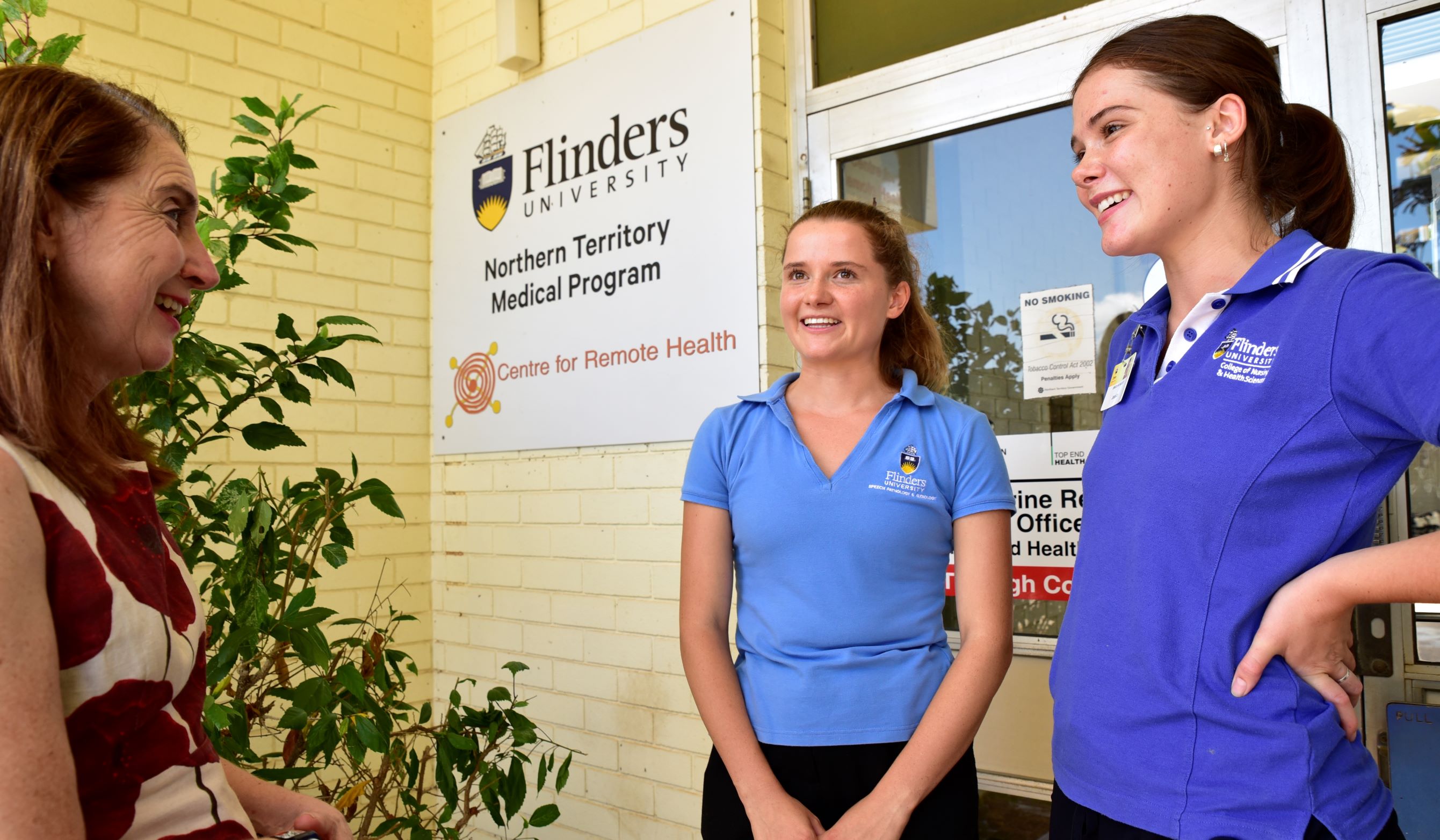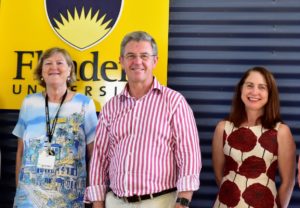
Flinders University’s allied health student placement program in Katherine will grow following the awarding of a Commonwealth grant – announced today by Regional Health Minister Dr David Gillespie.
Katherine is a regional service centre for thousands of remote community residents and the grant will enable the expansion of the speech pathology student placement program as well as the introduction of an occupational therapy student placement program.
Associate Professor Sue Lenthall, Director of Flinders University’s Katherine campus, welcomed the almost $2 million Commonwealth grant which will fund programs until 2024. The funding falls under the Rural Health Multidisciplinary Training (RHMT) program, which the Federal Government recently announced the expansion of to establish up to seven multidisciplinary health training sites across the country.
It will give health students the opportunity to train in rural and remote communities, with the aim of recruiting and retaining students to those areas following graduation. Katherine is one of two Flinders University sites to have received the grant – the other being the Riverland, Mallee and Coorong region in rural South Australia.
Associate Professor Lenthall says the program would not only train the next generation of allied health professionals but also provide much needed healthcare services to the Katherine region.
The project is a partnership between Flinders University Rural and Remote Health NT in Katherine, Indigenous Allied Health Australia (IAHA), Wurli-Wurlinjang Health Service, Katherine West Health Board and local schools.
The funding will provide a workforce pipeline of students to potentially return as graduates following positive service-learning experiences in the remote Katherine region.

Each year Flinders University facilitates placements in the Northern Territory for more than 400 nursing and allied health students from Universities across Australia. Between 2016-2019, just over one-third of students undertaking a placement in the Northern Territory took up positions in rural and remote Australia following graduation and 81% reported that the positive experience led them to consider working in the NT.
Flinders University will spend $1 million of the grant on increasing accommodation at Katherine to help expand the program, with the number of beds to grow from 14 to more than 20.
“Accommodation stops us from taking more students. With placements to increase, the extra accommodation will really contribute to Katherine’s economy, and our ability to grow the program,” says Associate Professor Lenthall.
Currently sixteen speech pathology students rotate through Katherine working at schools each year. This program will be expanded to include 16 occupational therapy students at schools, and a further eight speech therapists and eight OTs at Aboriginal health organisation Wurli-Wurlinjang each year.
“This allows Flinders University to expand our activities here and really meet community needs,” says Associate Professor Lenthall.
Alongside Flinders University students, the program will also be offered to students from other universities looking to complete their placement in a remote location. The grant would also allow for social work students to complete placements with the Katherine West Health Board.
Dean Rural and Remote Health Professor Robyn Aitken said Flinders University’s primary goal was to improve the health and well-being of the communities it serves, lives and works in.
“Flinders is committed to supporting the next generation of health workers to work in a rural or remote location through successful placements and unique experiences. The support given through the RHMT program allows us to expand on the work we are doing,” says Professor Aitken.
Deputy Dean Rural and Remote Health NT Professor James Smith said the expansion of the program at Katherine reinforced that Flinders University was a university for Territorians.
“Flinders University has a long tradition of serving the Territory. It not only produces the next generation of doctors through its successful NT Medical Program; it also provides opportunities for students in nursing and allied health across Australia to experience working in rural and remote locations in the NT,” says Professor Smith.
“This program is helping to make a positive impact on the Katherine region, and it’s important as a university that we support and create change to improve health outcomes.”
The NT Medical Program is a Territory success story with 92% of students who entered the program being NT residents, and more than half (54%) stay in the Territory long term.
Kylie Stothers Director of Indigenous Allied Health Australia Workforce Development is a proud Jawoyn woman from Katherine and said IAHA welcomed the announcement that Flinders University had been awarded the grant.
“We’re pleased to partner with them on this important work. We know that the allied health workforce plays a key role in improving the health and wellbeing outcomes of our communities, and clinical placement experiences in Katherine is an important strategy to developing the workforce locally,” says Ms Stothers.
Three full-time positions – a speech pathology supervisor OT supervisor and Aboriginal allied health assistant, and a part time social work position, will be funded through the grant.
An eight-seater vehicle will also be purchased to allow students on placement to attend cultural training and experiences in remote communities.

